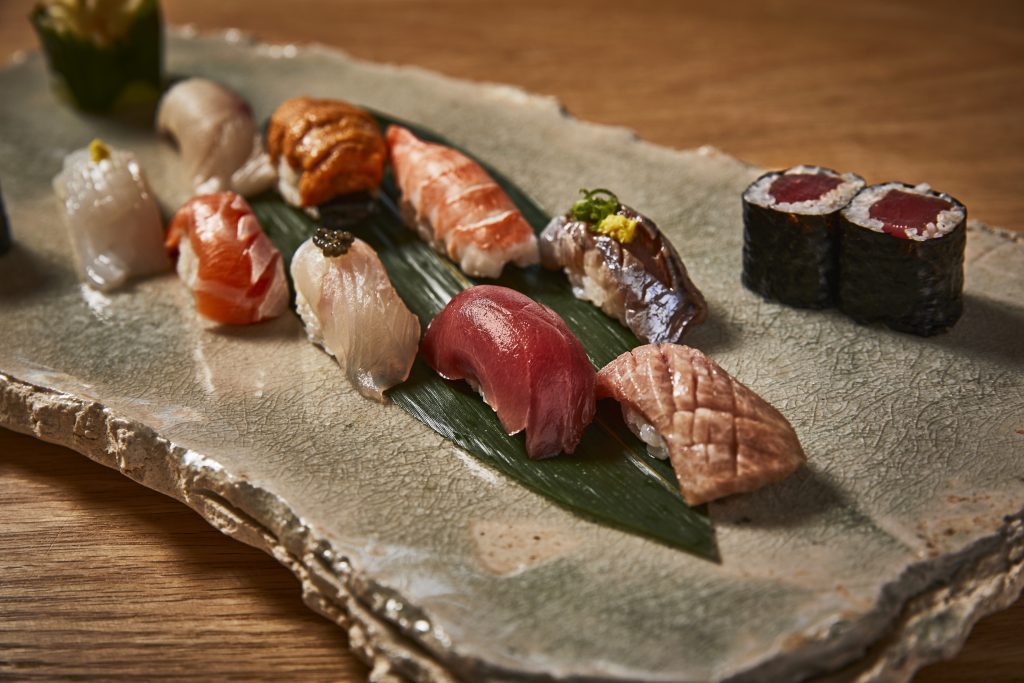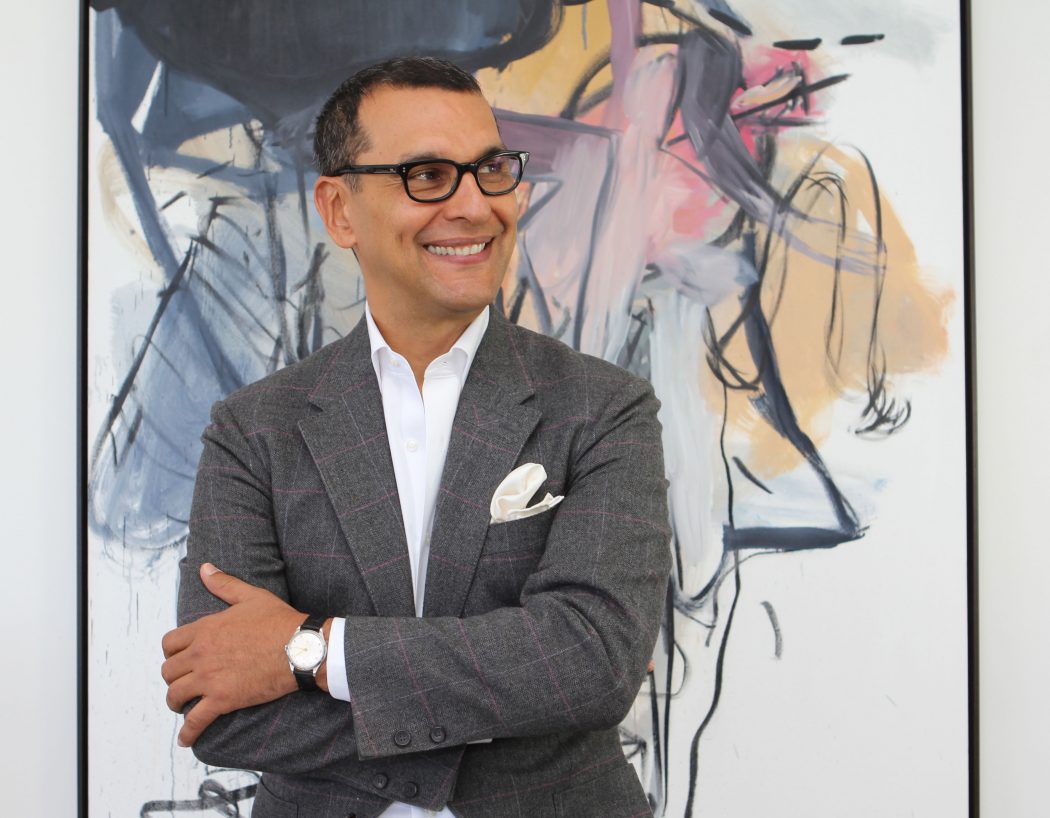A true creative at his core, Alvaro Perez Miranda has conquered the world of art and hospitality in endeavors spanning multiple decades and continents. I had the opportunity to speak with with Alvaro to learn more about his background, inspiration, current projects, and thoughts on the future of art and hospitality.
Linda: Alvaro, you have such an impressive background spanning multiple continents, in both the art and restaurant industry. Let’s begin with going back to your roots in Venezuela; was there anything in particular that inspired you or piqued your interest at that time in either art or hospitality? Did you have this innate interest, or was it something that grew through experience?
Alvaro: Drawing is a natural talent of mine. I wanted to be an artist and a painter so I went to art school in Italy. I was originally influenced by my mother who was a really good cook. Italy really opened up the culinary world to me. I wanted to learn about regional Italian cuisine and wines, and then I moved to Los Angeles to continue my education at Otis/Parsons in the 1980s. I ended up dropping out because I wanted to be in the restaurant business. I longed to use my creativity to create concepts and decorate restaurants with art. So all of the restaurants that I have done in my life — more than 30 — have all been very art-driven.
Linda: Having been born in Venezuela, studying in both Los Angeles and Italy, moving to Tokyo for 16 years, then to New York City and now Miami — you’ve experienced first-hand a whirlwind of cultures and witnessed significant evolutions in both the art and hospitality spaces. What changes have you seen in these spaces over the years, for better or for worse? How has each of these destinations influenced your work?
Alvaro: Every city that I’ve lived in has influenced me immensely but I would say mostly Japan. I think I am affected from OCD and initially when I went there I only planned to be there for a year but ended up spending 10 years there. I felt very comfortable and had a connection with the Japanese culture and the need for everything to be perfect. Through my artistic side, I was able to understand the culture and values of Japanese culture and respect them. When you are in a different country and really admire the culture, people take note of that and open doors for you so I was able to make a lot of friends there quickly.
Linda: During your time in Tokyo you assisted with the opening or development of an astounding 70+ eateries. What was it about the restaurant scene in Tokyo that really resonated with you? Then what led you to return to the United States (New York nonetheless)?
Response: As a foreigner in Japan, and being Latin at that, I really stood out. I was fortunate to create various concepts like Italian and French restaurants, coffee shops, ice cream shops and more that all had a little Latin flair. We trained all of our employees to say “Buenos dias” when people came into the restaurant, giving me something unique that I could bring to each restaurant. I moved to New York when my son was born. I sold my shares of the company because I wanted to be more involved in the art business since I was already collecting. I also wanted my son to grow up in a very diverse city so it was the best decision for me.
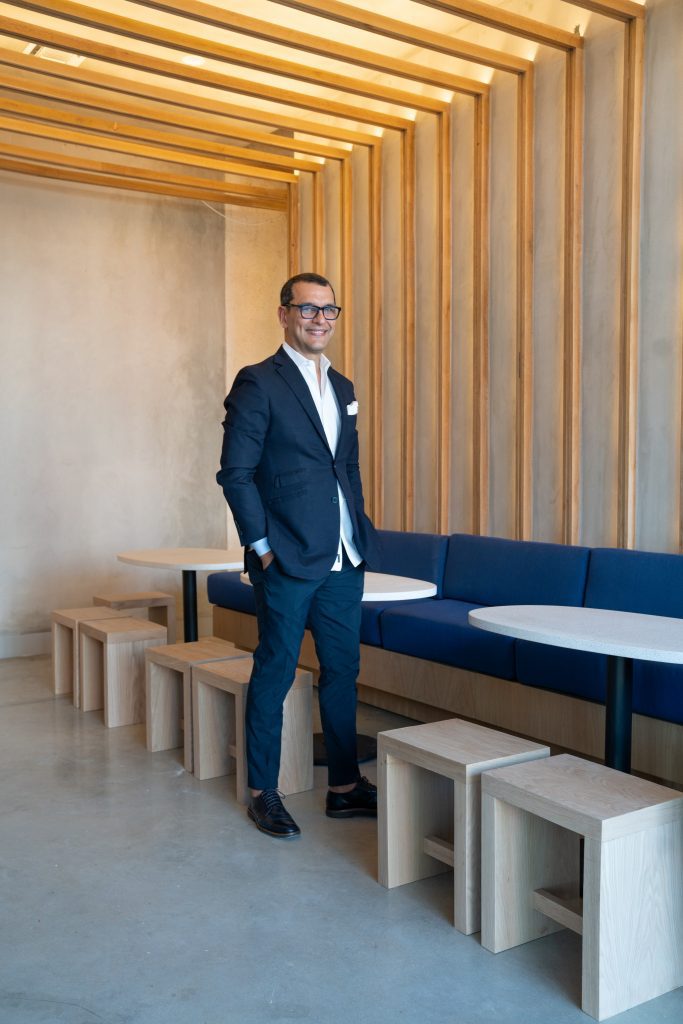
Linda: When approaching a new project, do you have a streamlined philosophy or do you find yourself being more imaginitive/experimentive?
Alvaro: The most important thing is that you need to understand what you are doing and how you are going to execute it. Every project is unique in it’s own way so you have to adjust your mindset. I tend to start with a streamlined philosophy and then embrace my imaginative side.
Linda: Of all your projects, which has been the most enjoyable to see come to fruition and why?
Alvaro: Wow, I have really enjoyed every project I’ve worked on. Every project gives you a level of satisfaction from the moment you begin thinking about it to researching and getting more people involved and seeing it grow. I love listening to young people’s opinions on what I am doing. It helps keep me in touch with the new generation. Every project gives me a great deal of satisfaction once it is done. Honestly, I see the opening of a restaurant as the beginning of a project and love to see how it is perceived and grows from there.
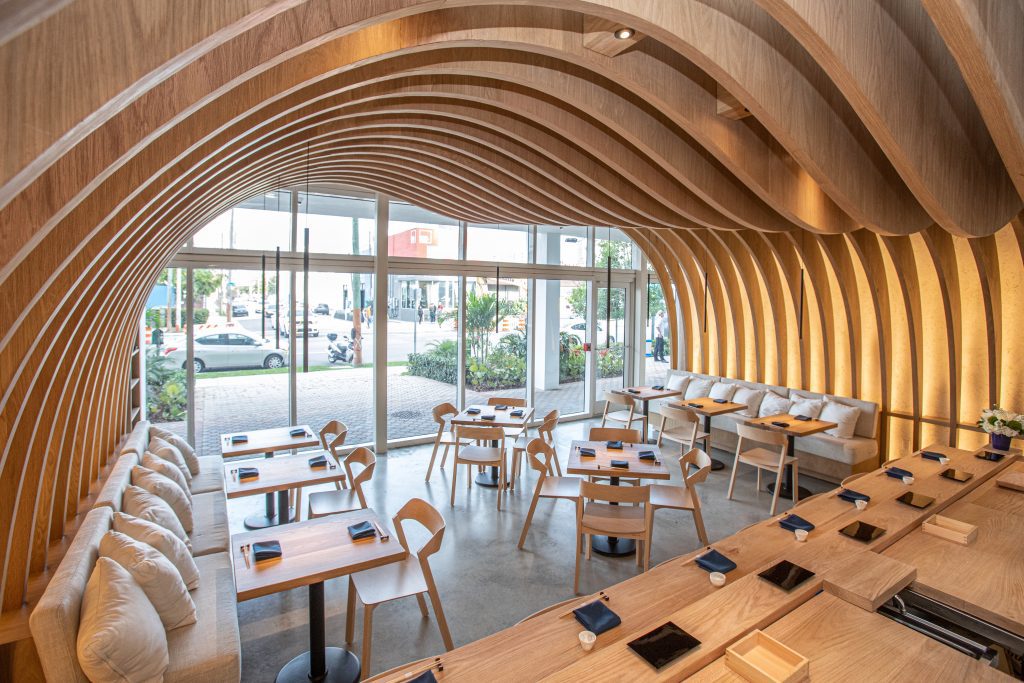
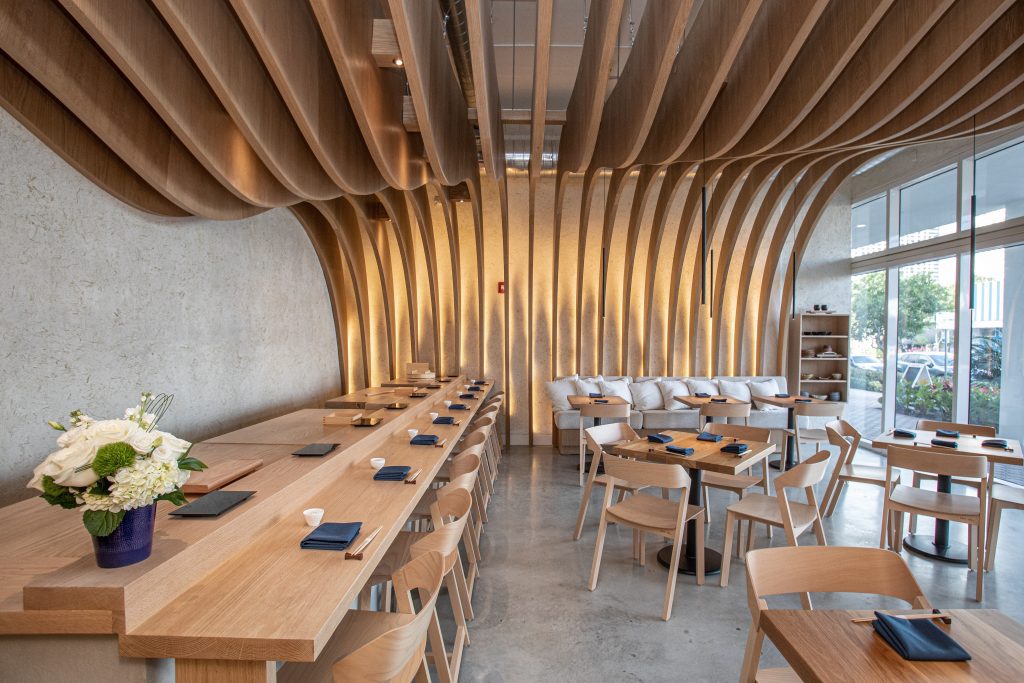
Linda: Your new Edomae-style eatery, Hiyakawa in Miami’s Wynwood neighborhood opened to immense fanfare in October. What about this restaurant set’s it apart from the rest or makes it unique to the area?
Alvaro: At Hiyakawa, we wanted the restaurant itself to be an art installation that creates a very warm and cozy atmosphere. The wood gives it the feeling that it is homey and grounded so we use it throughout Hiyakawa. Food is the other main element. Here, our main objective is to give the experience as if you are eating in Japan. The quality of the food and experience we are offering is like what you would find in Ginza or New York.
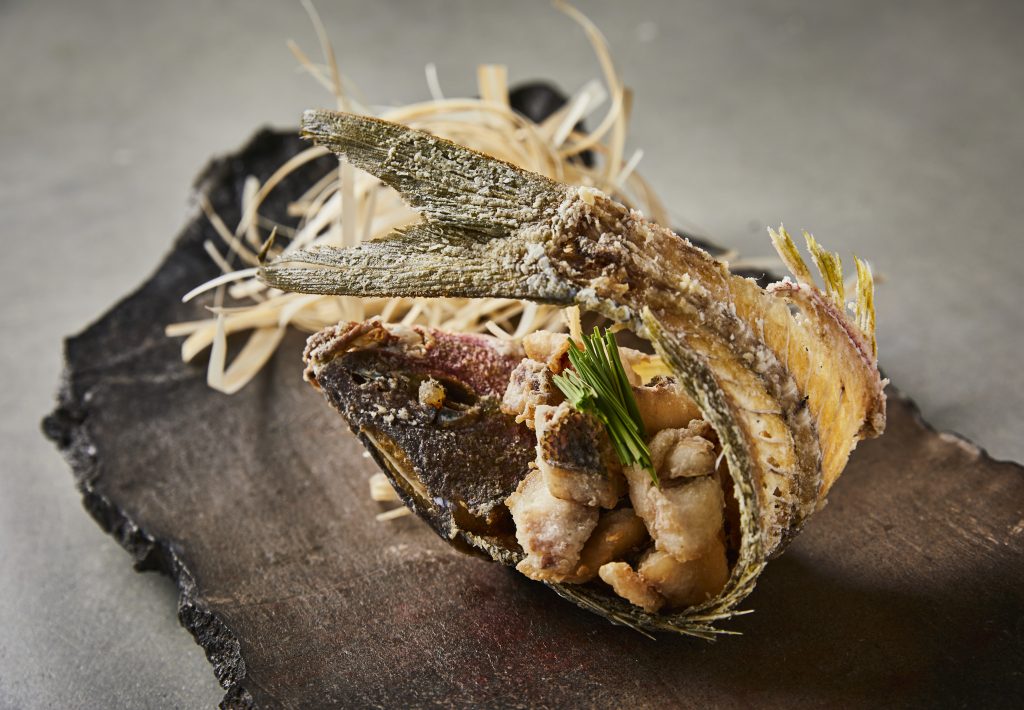
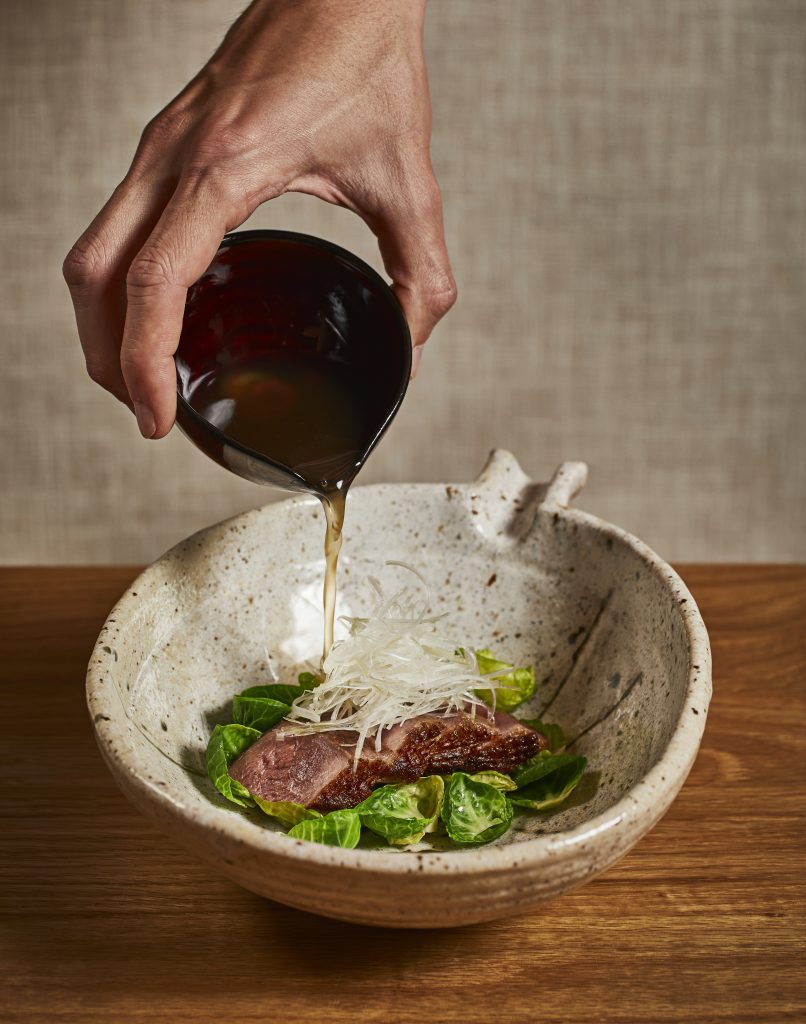
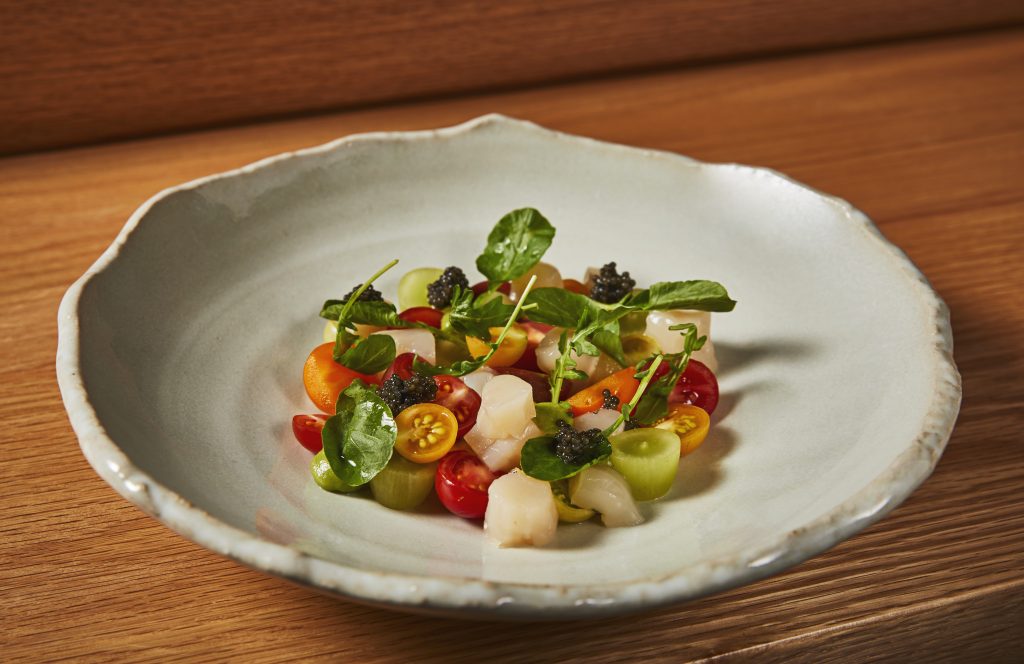
Linda: Are there any other upcoming projects you’re working on that we can get excited about?
Alvaro: We are opening another Wabi Sabi in Coconut Grove and we are really looking to continue to expand the brand.
Linda: Where do you see the future going in terms of the art world? And the same for hospitality?
Alvaro: Market manipulation has increased prices in the art world astronomically. Because of this, I like to work with emerging artists because they need the extra push and we can really help elevate them in the industry. There is so much young talent that deserves the push and I love to be able to give them that opportunity. In the future, I think people will buy things they really like and are affordable. In terms of the restaurant business, we don’t really know what will happen after Covid. Will we continue with the same trends? Will there be more outdoor dining spaces? It’s hard to tell but one thing people will keep doing is eating.
Linda: What advise can you give to entrepreneurs in either the art or hospitality spaces to succeed in these ever-changing times?
Alvaro: The restaurant business has two very interesting sides. One is that everybody dreams to have a restaurant, especially people with money. The second is that they don’t know how hard it is but you really need to put your passion into what you do. For me, customer service and the way you treat your guests is very crucial so it’s always important to me to establish that relationship.
